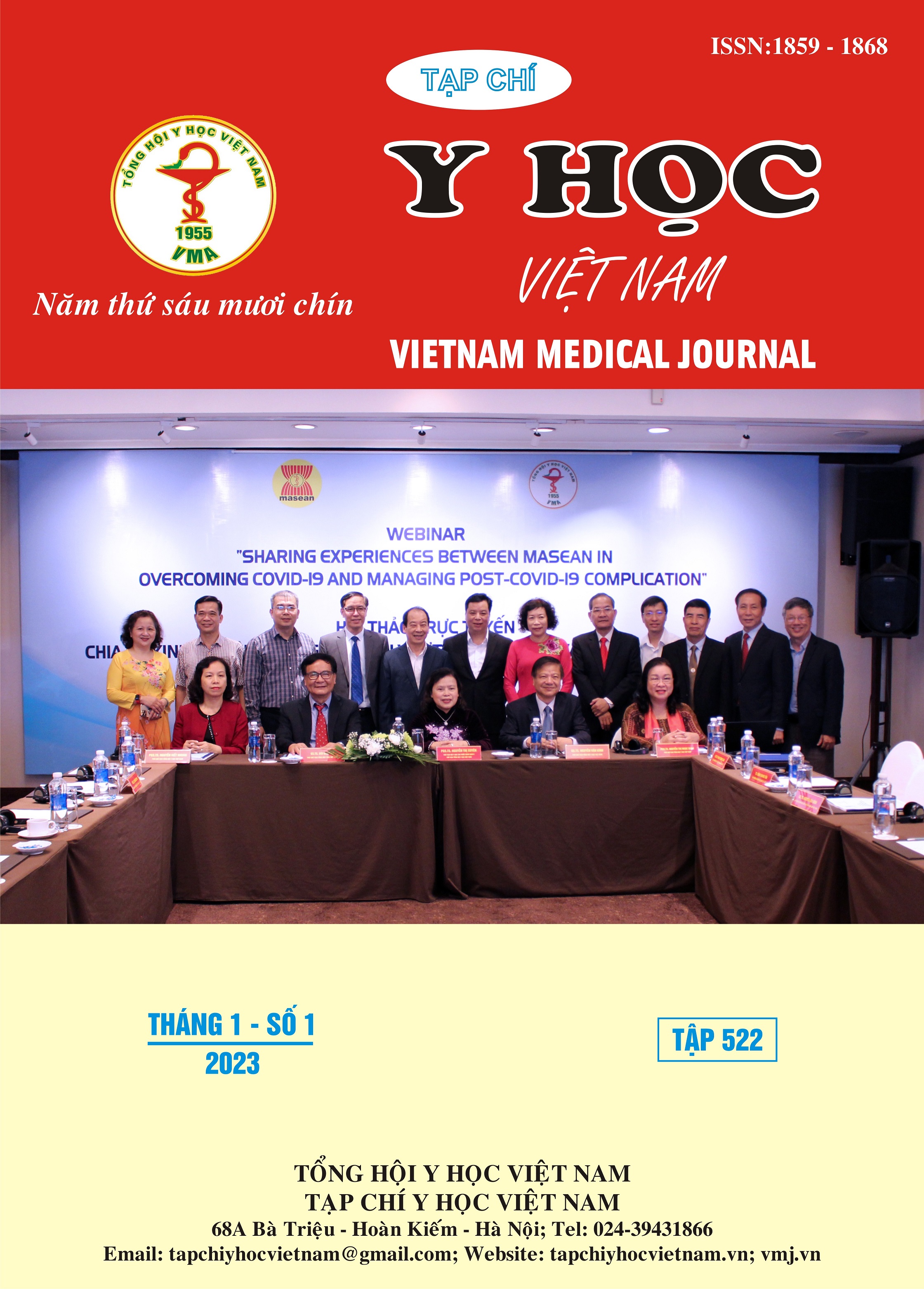PROMOTING COPING SELF-EFFICACY IN ADOLESCENTS: RESULT OF A HAPPY HOUSE PROGRAM IN HIGH SCHOOLS IN HANOI
Main Article Content
Abstract
Aims: This research was intend to examine the effect of Happy House Program on coping self-efficacy in adolescents. Methods: A school-based, two-arm parallel controlled trial was conducted in Hanoi, Vietnam including students from eight schools. The control group received the usual curriculum. The intervention group received six weekly 90-minute group sessions of Happy House. Coping self-efficacy were measured using the Coping Self-Efficacy Scale –Vietnamese version (CSE-V). Data were collected at recruitment, and at two weeks and six months post-intervention. Mixed-effect models were conducted to estimate the effects of the intervention on the outcomes at an individual level following intention-to-treat principles (1083 students: 552 in Control group and 531 in Intervention group). Results: Coping self-efficacy mean scores were significantly higher in the intervention group at both post-intervention (adjusted difference 9,23; CI 3,58;14,87) and six-month follow-up (adjusted difference 8,50; CI 2,49;14,52). Conclusion: Data strongly support that Happy House has great potential to be integrated into the existing school curriculum to promote mental health of adolescents in Vietnam.
Article Details
Keywords
Coping self-efficacy, Happy House intervention, adolescents.
References
2. UNICEF. Sức khỏe tâm thần và tâm lý xã hội của trẻ em và thanh niên tại một số tỉnh và thành phố ở Việt Nam. 2018.
3. Trần Văn Công, Nguyễn Thị Hoài Phương, Trần Thành Nam. Thực trạng khó khăn tâm lý của học sinh và nhu cầu sử dụng ứng dụng tư vấn tâm lý trong trường học. Tạp chí khoa học và công nghệ Việt Nam. 2019.
4. Cicognani E. Coping Strategies With Minor Stressors in Adolescence: Relationships With Social Support, Self‐Efficacy, and Psychological Well‐Being. Journal of Applied Social Psychology. 2011;41:559-78.
5. Ian Shochet Astrid Wurl. Chương trình Happy House, Sách dành cho người hướng dẫn. 2020.
6. Tran, T., La, N., Nguyen, H. et al. Validation of the coping self-efficacy scale: Vietnamese version for adolescents. BMC Psychol 10, 59 (2022).
7. Rivet-Duval E, Heriot S, Hunt C. Preventing adolescent depression in Mauritius: A universal school-based program. Child and Adolescent Mental Health. 2011;16(2):86-91.
8. de Lijster GP, Felten H, Kok G, Kocken PL. Effects of an Interactive School-Based Program for Preventing Adolescent Sexual Harassment: A Cluster-Randomized Controlled Evaluation Study. J Youth Adolesc. 2016 May;45(5):874-86.


